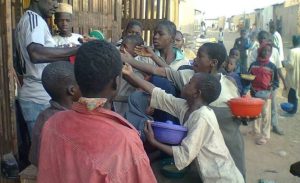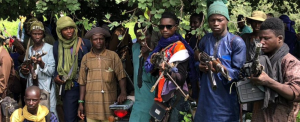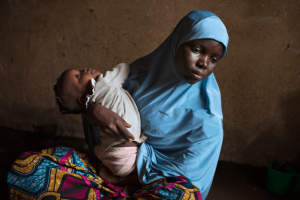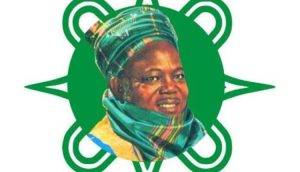By Michael Chibuzo
Nigeria since independence has had to navigate countless political landmines that are often times rooted in either tribal/religious rhetoric or North-South divide. Talking about the North-South division, this geographical faultline was birthed by the British division of Nigeria into the Northern and Southern protectorates, which were administered separately until the 1914 amalgamation. Unfortunately, even with the amalgamation of the two protectorates, the faultline never disappeared completely.
Due to the political structure Nigeria adopted at independence, Northern Nigeria over the years have become a kingmaker of some sort due to their huge voting bloc. A look at the presidential electoral map in Nigeria since the 1979 elections that ushered in Nigeria’s first elected executive president, it is not difficult to see that for a presidential candidate and political party to successfully form government at the federal level, they need to have a winning alliance with the North or parts of the north in some form.
This bargaining power of the north mostly held by the northern political elites has however not translated to a commensurate development for the vast majority of people in the north. As a matter of fact it is not far fetched if one says that the illusion of wielding a political bargaining power has been turned to a blackmailing tool by the northern elites and political establishment in recent times.
Whenever a northerner is not wielding the presidential power, the northern political base seems to view many actions of the central government that appears to have more adverse effects on the North as a deliberate attack on the North even when other parts of the country are also affected. During such times, it is common to see subtle and not-so-subtle electoral threats against the President on seat. “The North remembers” would be flying around in posts and articles. But if we are to delve into an emotionless analysis, what exactly does the North remember?
A lot of northern elites (not ALL by the way) want political power or patronage more than lasting solutions to developmental, economic and social challenges plaguing the North, which also plagues the south in near equal measures sometimes. It is not a hidden fact that the leaders in the North have failed their people. Leaders here include both political, traditional and religious leaders. For so long, Northern leaders have not sufficiently invested in their people nor helped their states to take advantage of the enormous opportunities in their states to fight poverty, illiteracy and insecurity.
One area where the North has not remembered to invest in is EDUCATION. Education or lack of it, is central to the poor performance of a lot of developmental indices we see in northern Nigeria. It is not disputable that the North lag behind when it comes to education in Nigeria. To start with, it has the highest number of out-of-school children in Nigeria. As a matter of fact the top 17 states in Nigeria with the highest percentage of out-of-school children are in northern Nigeria. Mind you, there are 19 northern states. So, Kogi and Benue are the only other states not captured here, with Kogi being the northern state with the least number of out-of-school children at 10.2%.
What the above data suggests is that the North does not remember to educate its children. Who shoulders most of the blame? The northern leaders of course! There are many barriers that prevent a lot of children in the North from accessing education. Sadly, the northern leaders have not been aggressive enough to break down such barriers or maybe they do not remember how to. Some would tell you that the major reason for the poor educational record of the North is poverty but I don’t totally agree with that and I will tell you why using my personal experience.
I was born in Sumaila town, Sumaila LGA of Kano State. My dad was trading back then and opened a couple of branches. We moved from Sumaila town to a community called Gani still within Sumaila LGA. This is where I started my primary school at a public school. My primary school in Gani had around 5 classroom blocks. They don’t collect one kobo from any parent. I was given English and mathematics textbooks free of charge, I was given free exercise books every term. The only thing my parents did was to sew school uniform for me and buy sandals and socks.
However, every morning when I set off for school, I see a lot of boys my age who have just finished their early morning recitation of the holy book of Qur’an in one of the Islamic schools close to my house, setting off to either fetch firewoods (especially during harmattan) for bonfires or fetch water. Some of them by that early morning have even started moving from house to house begging for food – many of them always come to our house then because we often give them food. Many locals give them Sadaka. I even made some of them within my age bracket my friends and I got to know that many of them came from far away villages and settlements.

It is difficult for me to believe that the major reason why those my age mates in Gani were not attending primary school with me was poverty. This is because, we literally do not pay any fees in the school. The same thing was applicable when we moved to Wudil before we relocated back to my home state at the turn of the new millennium. So, it has to be something other than poverty even if poverty is a contributory factor.
The truth is that religious leaders in the North encourage their people to send their kids or wards to Islamic teachers to receive Islamic education and other trainings when they should be with their parents and going to conventional schools. The traditional leaders in the community endorse this. The political leaders at various levels on their part do not advocate for the practice to stop or at least aggressively pursue programmes that would combine Islamic education and secular education for kids. They simply sit back and allow a monster to be created which eventually drags down the rest of the society.
To be clear, I do not have anything whatsoever against Islamic education, after all Christians also have some form of Christian education targeted at kids. However, Islamic education alone, (just like Christian education) CANNOT equip a child to succeed in life in this 21st century. On this, the northern leaders have failed woefully and the consequence is manifesting in many folds. Due to the failure to massively educate children in the North, we now have a mass of young people including teenagers who are easily recruited into different forms of criminality including vandalism of public assets as they try to survive. If kids are busy with school (whether secular or vocational), they will not be available for recruitment by criminals. The North needs to remember this!
The North should also remember to talk to its young adults who are turning farmlands and communities in the North into war zones. The decades of neglect suffered by education in the hands of governments across many northern states and the indirect role played by religious leaders has resulted in a huge population of young adults who are not equipped to be productive in life and who have readily embraced violent crimes. This is why we have Boko Haram and bandits roaming around the North East and North West. The resultant effect is that Nigeria for the past ten years had to expend trillions of naira to fight insurgency and banditry and continues to spend more with millions of northerners displaced and unable to live in their communities.

The North should also remember to revisit some cultural norms that encourage population explosion such as early marriages without any commensurate economic ability to sustain the new families. This is part of the reason why the Almajirinchi phenomenon has an endless flow of recruits because many of these families readily outsource their parental responsibility to the freelance teachers in the Islamic schools. This exposes many of these children to religious radicalisation and they become the recruitment pool for religious extremists.

The northern religious leaders seem not to be sufficiently bothered about this menace neither do the political leaders see this as an existential problem that needs strong action, rather some may even encourage these practices since it boosts the demographic number of the North and by extension their electoral advantage that enables them to ‘teach’ presidential candidates that do not dance to their tunes electoral lessons or make a President a “one term president.” It appears as if a lot of leaders in the North and many northern elites are more interested in using the population of the region as a chip to bargain for power or protect their personal economic and business interests instead of as a tool to give the average northerner a pathway to a decent life.
Just like in many southern states, those at the helm of affairs in most of the northern states are not doing nearly enough to transform the economic landscape of their various states within the limits of the powers and resources available to them. Governors always blame the federal government for things they share responsibility. The local government system is in comatose, relinquishing their basic responsibilities and allowing many ungoverned spaces to proliferate within their territory. The state governments on their part are doing little to stimulate economic growth in their states. Agriculture, which is the predominant productive venture in the north is still left at the basic level with predominance of manual farming implements, very poor storage system leading to high post-harvest losses and pastoral livestock rearing practices, which leads to deadly clashes with farmers sometimes.

The political class in most northern states are also not interested in taking advantage of the abundance of many agricultural produce in the North, which can serve as primary raw materials to industrialise the north. Maybe they need to remember how Sir Ahmadu Bello as the premier of Northern Nigeria, invested £1.25 million to establish around 60 industrial firms in Kaduna prior to Nigeria’s independence. It is time the present political elites in the North begin to remember how to drive industrialisation in the north, which would provide job opportunities for millions of youths who are currently forced to migrate in large numbers across Nigeria in search of any means of livelihood. It is no longer enough to remember just the number of votes that the region gave a wining presidential candidate.

Voting is very easy, after all, it is a one-day affair that happens once every other four years, development and investment in the people on the other hand must happen continuously without let and requires more work and innovative thinking. This is where the North needs to remember how to do it. Sir Ahmadu Bello did it once upon a time, it is time for the present crop of leaders in the North to get serious with local governance in addition to carrying out a social re-engineering of the North. Most importantly, the people of the North should remember how to hold their own leaders responsible for things they should be doing but have failed to do.
Currently at the federal level, Nigeria under the leadership of President Bola Tinubu is undergoing a systemic re-engineering, which involves moving away from things that we have been used to for decades to new and more sustainable alternatives. These huge changes coming together at once can be disruptive for everyone, whether you are in the North or South. So, it is important that people see these changes for what they truly are and not a calculated attack on any region, especially the North.
Also, when there are ongoing challenges that affect sections of the north more, it is necessary to resist the temptation to spin conspiracy theories instead of analysing WHY the problem affects the North disproportionately with a view to looking for lasting solutions. It does no one any good pushing “The North Remembers” rhetoric. For the sake of the long-suffering millions of Nigerians in the north, northern political, religious and traditional leaders should remember how to solve problems instead of dishing out subtle electoral threats.

